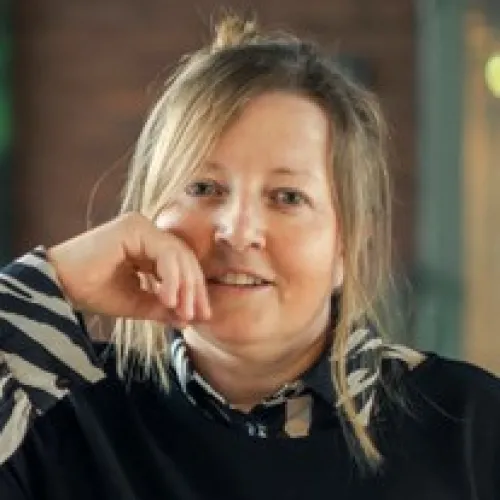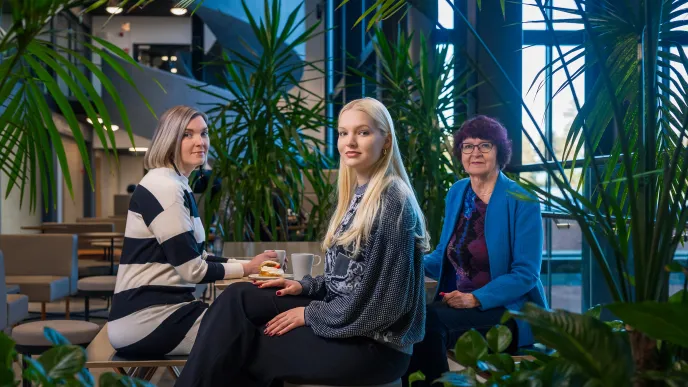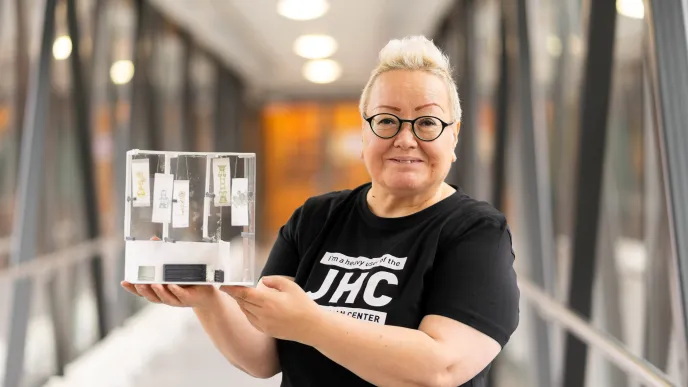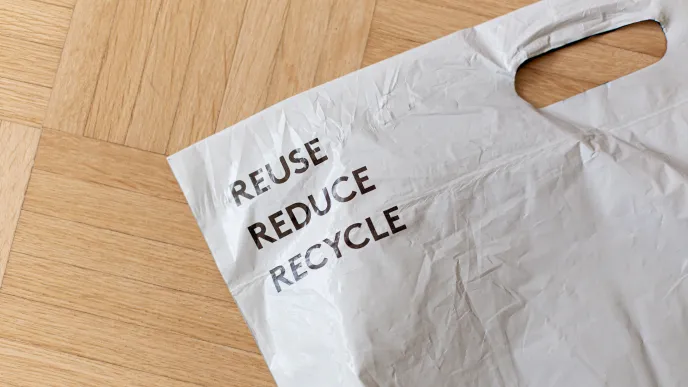On this page
Last year five researchers at the LUT School of Business and Management made it to the Financial Times Research rank (FT 50), which lists the top 50 academic business and economics journals.
Professor Henri Hakala from LUT's Mikkeli unit and Paavo Ritala from Lappeenranta published studies in the renowned Journal of Management (JOM). SAGE, the publisher of JOM, revealed that prior to this, JOM had published only seven papers from Finland.
Assistant Professor Jenni Sipilä from LUT's Lahti campus also made the FT 50 list. Her research paper was published in the Journal of the Academy of Marketing Science (JAMS).
Associate Professor Laura Albareda and Junior Researcher Tiia-Lotta Pekkanen from Lappeenranta also made the list: both published in the Journal of Business Ethics.
"These are great achievements. Researchers get cited and their impact grows. If a researcher gets published in a highly ranked journal, people also find and read their other studies more frequently. Getting published in FT top 50 journals is global currency for a researcher," explains Dean Sami Saarenketo, LUT School of Business and Management.
LUT's green values at the core of research
Henri Hakala and his co-authors got their paper To buy green or not to buy green: Do structural dependencies block ecological responsiveness? published in JOM. It examines the desire and ability of businesses to adopt more environmentally friendly manufacturing materials. The findings suggest that manufacturing companies focusing on intangible value creation find it easier to shift to ecological manufacturing materials than businesses basing their competitive edge solely on product or production process excellence.
"On the other hand, highly specialised production processes or the product's dependency on the use of specific materials slow down the adoption of novel materials. For example, materials that substitute for plastics are not often identical in terms of technical properties, and therefore, the products or production methods must be redesigned to suit the substituting material."
Hakala observed that companies put in a great deal of effort to establish and audit responsible supply chains for materials that are problematic from the environmental standpoint.
"Responsible supply chains are a good thing, but manufacturing firms could also seek to switch to input materials that are simply less problematic. Examples include bioplastics, wood cellulose derived fabrics and renewable fuels."
Paavo Ritala and his colleague Llewellyn Thomas published the paper Ecosystem Legitimacy Emergence: A Collective Action View in JOM, discussing the emergence of legitimacy across different types of business, innovation, and platform ecosystems. Their conceptualisation helps explain how new ecosystems are built and how they achieve institutional prominence.
"Many ecosystems need to start from scratch and convince their stakeholders of the utility and distinctiveness of their value propositions. Our study demonstrates how successful ecosystems achieve this," Ritala outlines.
The paper mentions several examples of ecosystems that have succeeded in building legitimacy from the ground up, such as the Finnish start-up ResQClub, which aims to reduce food waste with a digital platform that brings restaurants and diners together.
Ecological consumer choices surprisingly complex
Jenni Sipilä's topical paper Corporate social responsibility in luxury contexts: potential pitfalls and how to overcome them was published in JAMS. Sipilä and her German colleagues examined consumer reactions to luxury companies' corporate social responsibility engagement. The surprising outcome was that corporate social responsibility engagement reduces luxury companies' sales revenue growth and brand value growth in the long run.
"Not all corporate social responsibility advertising works – the matter must be presented in the right light. For example, customers react more positively when a luxury brand invests in the well-being of its employees than when it donates to charity," Sipilä says.
Also Tiia-Lotta Pekkanen dealt with sustainable consumption in her paper Institutions and Agency in the Sustainability of Day-to-Day Consumption Practices: An Institutional Ethnographic Study. Pekkanen researched how much the sustainability of everyday material consumption depends on a person's motivated choices and how much on structural aspects.
"As a result, I conceptualise the relation between an individual's conscious choices and societal structures as something that is rooted culturally. The more deeply sustainable consumption is rooted, the less the consumer needs to make conscious choices," Pekkanen states.
According to Pekkanen, in terms of policy measures it is important that deeply rooted practices and conscious preferences are addressed in different ways.
The paper is part of Pekkanen's dissertation, which underwent a public examination on 27 January 2021.
Laura Albareda and her co-author explore ethical and economic viewpoints in organisational development in the paper Commons Organizing: Embedding Common Good and Institutions for Collective Action. Insights from Ethics and Economics. Albareda created problem-solving mechanisms that combine both perspectives.
"We are extremely proud of the fact that the Journal of Business Ethics published our paper. Our aim is to find potential collective business action solutions for the common good by renewing businesses and organisations. Our research underscores the expected impact that collective action theory will have on businesses and organisations over the coming years, devising solutions for grand challenges such as global commons," Albareda says.
In addition, Albareda points out that their paper showcases LUT University's purposeful contribution to science and its aim for societal impact in Finland and around the world. Albareda's article also received two other academic recognitions.
Online congratulations instead of toasting with the team
The LUT School of Business and Management has made a habit of toasting academic achievements together.
"So many FT 50 publications are certainly a feather in our cap! My paper was published in January 2020 – before the COVID-19 pandemic – and we were able to raise a toast together in honour of it," Tiia-Lotta Pekkanen says.
Most of the FT 50 authors have had to settle for online and email congratulations. Nevertheless, each member of the victorious quintet has safely received a personal gift.
More information:

Laura Albareda

Henri Hakala


Jenni Sipilä








